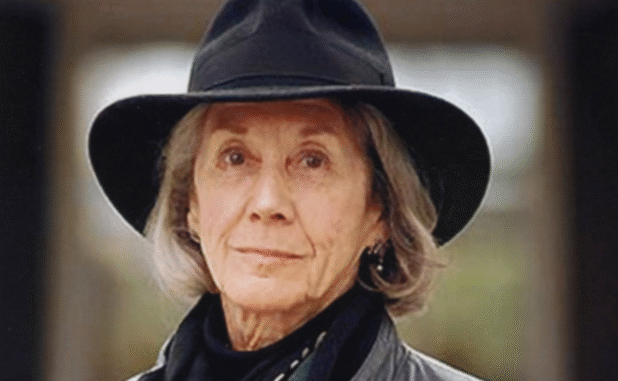
Nadine Gordimer (1923–2014) was a South African writer and political activist. She was known for novels, short stories, and essays addressing apartheid, race, and social justice. Her writing was honest, reflective, and deeply tied to South African society. She won the Nobel Prize in Literature in 1991 and influenced generations of readers.
Early Life
Nadine Gordimer was born in 1923 in Springs, South Africa. She grew up in a liberal Jewish family. Her parents encouraged reading and critical thinking. She started writing stories as a teenager. The world around her, shaped by apartheid, became central to her work.
Literary Beginnings
In the 1940s, Gordimer began publishing short stories in South African magazines. Her early works explored racial segregation, human rights, and personal freedom. Her first novel, The Lying Days (1953), reflected life under apartheid.
She became known for honest depictions of South African society and the struggles of ordinary people.
Major Works
-
The Lying Days (1953) – Debut novel; explores white South African society and racial consciousness.
-
Burger’s Daughter (1979) – Story of political activism; banned by apartheid government.
-
July’s People (1981) – Imagines post-apartheid society and social upheaval.
-
My Son’s Story (1990) – Explores personal and political struggles under apartheid.
-
None to Accompany Me (1994) – Set in post-apartheid South Africa; explores freedom and change.
-
Get a Life (2005) – Short stories reflecting modern South African society.
The Lying Days (1953)
Gordimer’s debut novel focused on growing up in a racially divided society. It questioned social norms and challenged apartheid indirectly. The novel set the tone for her lifelong commitment to truthful storytelling.
Burger’s Daughter (1979)
This novel explored political activism through the life of a young woman. It was banned in South Africa but became internationally recognized. It solidified Gordimer as a key voice against apartheid.
July’s People (1981)
A novel imagining the collapse of apartheid. It examined race, power, and human relationships in crisis. It remains one of her most studied works in South African literature.
What Made Her Different
-
Honest depictions of South African society under apartheid.
-
Strong focus on race, politics, and personal morality.
-
Courageous; risked censorship and political backlash.
-
Combined literary artistry with social activism.
-
Explored human psychology alongside societal issues.
She wrote for truth, not popularity.
Who Read Her
-
Students and academics of African literature and social justice.
-
South Africans interested in anti-apartheid thought.
-
Global readers seeking insight into apartheid and human rights.
-
Writers inspired by her style and activism.
Her readership values insight, honesty, and depth.
Collaborations and Influence
-
Gordimer worked with publishers and literary magazines internationally.
-
She mentored young writers and spoke at universities.
-
Influenced global understanding of South African politics and literature.
Her work is cited in academic studies on race, gender, and social justice.
Activism and Cultural Role
She opposed apartheid actively and publicly. Her books were often banned or censored in South Africa. She spoke at conferences, wrote essays, and supported political prisoners. She believed literature could influence social change.
Later Years and Legacy
Nadine Gordimer continued writing until her death in 2014. She won the Nobel Prize in Literature (1991). Her work remains central to studies of African literature and apartheid.
Legacy highlights:
-
Key voice against apartheid.
-
Nobel laureate and internationally recognized author.
-
Influencer of African and global literature.
-
Mentor and inspiration to generations of writers.
Words
Nadine Gordimer was more than a writer. She was a voice for justice and truth in South Africa.
Her stories captured the complexity of life under apartheid. They combined art, morality, and social awareness.
For anyone exploring South African literature, apartheid history, or human rights, Nadine Gordimer is essential reading.
Leave a Reply